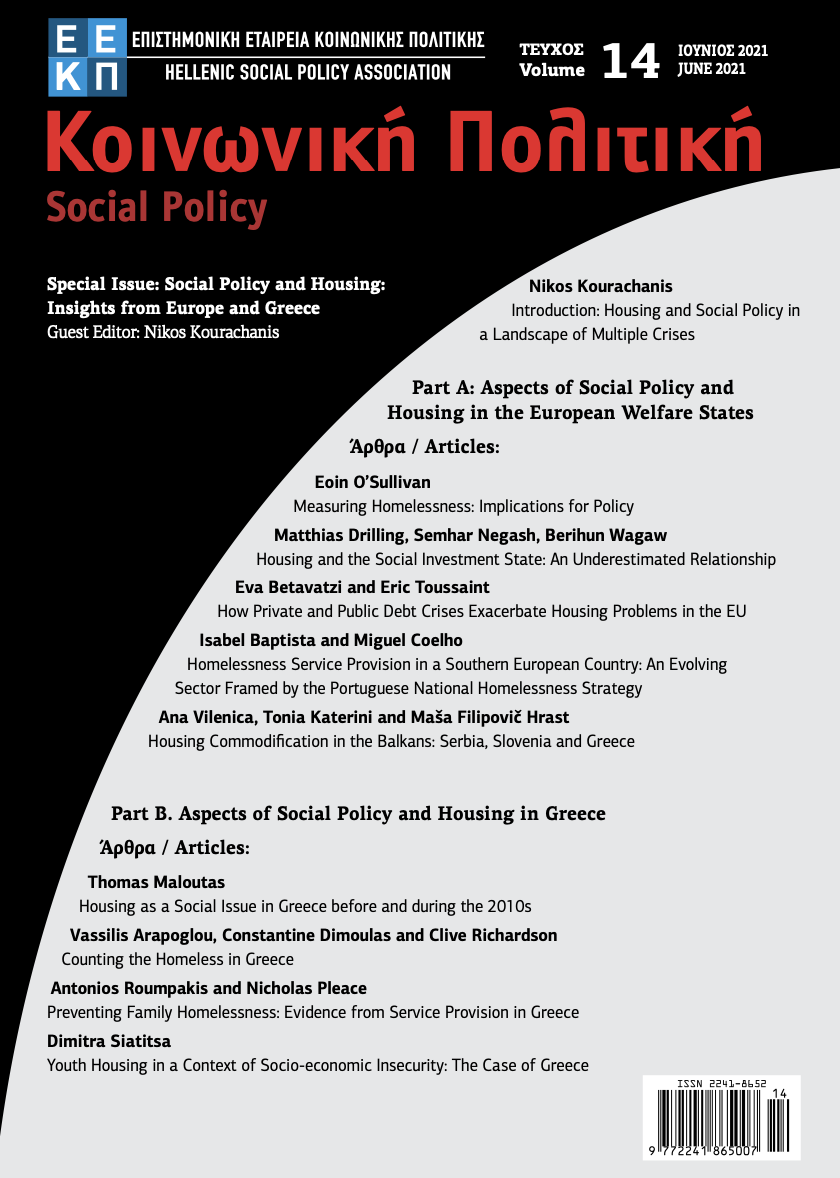Housing Commodification in the Balkans: Serbia, Slovenia and Greece

Abstract
In Balkans region, uneven development under global capitalism has led to significant differences in housing commodification patterns, related (social and housing) policy and associated inequalities. In this article we describe commodification patterns in Slovenia, Serbia and Greece by considering the diversity existing in the semiperiphery. We do this by comparing processes of privatisation of housing, development of the rental sector, strategies to homeownership and legal frameworks of protection of property and housing rights. We find some similarities in specific individual and familial commodification patterns and also pronounced inequalities but also semiperiphery diversity, which has been produced and maintained by the presence (or absence) of policies and state care provided for certain vulnerable groups. These diverse aspects arise from specific local, regional and global histories of housing struggles that mean the responses to them have varied. In this research, we show that Balkans semiperipheral territories must not be regarded as a passive background but as a landscape in which active agents participate in creating and transforming commodification patterns.
Article Details
- How to Cite
-
Vilenica, A., Katerini, T., & Filipovič Hrast, M. (2021). Housing Commodification in the Balkans: Serbia, Slovenia and Greece. Social Policy, 14, 81–98. https://doi.org/10.12681/sp.29079
- Issue
- Vol. 14 (2021)
- Section
- Articles

This work is licensed under a Creative Commons Attribution 4.0 International License.
Authors who publish with this journal agree to the following terms:
Authors retain copyright and grant the journal right of first publication with the work simultaneously licensed under a Creative Commons Attribution Non-Commercial License that allows others to share the work with an acknowledgement of the work's authorship and initial publication in this journal.
Authors are able to enter into separate, additional contractual arrangements for the non-exclusive distribution of the journal's published version of the work (e.g. post it to an institutional repository or publish it in a book), with an acknowledgement of its initial publication in this journal.
Authors are permitted and encouraged to post their work online (preferably in institutional repositories or on their website) prior to and during the submission process, as it can lead to productive exchanges, as well as earlier and greater citation of published work.


